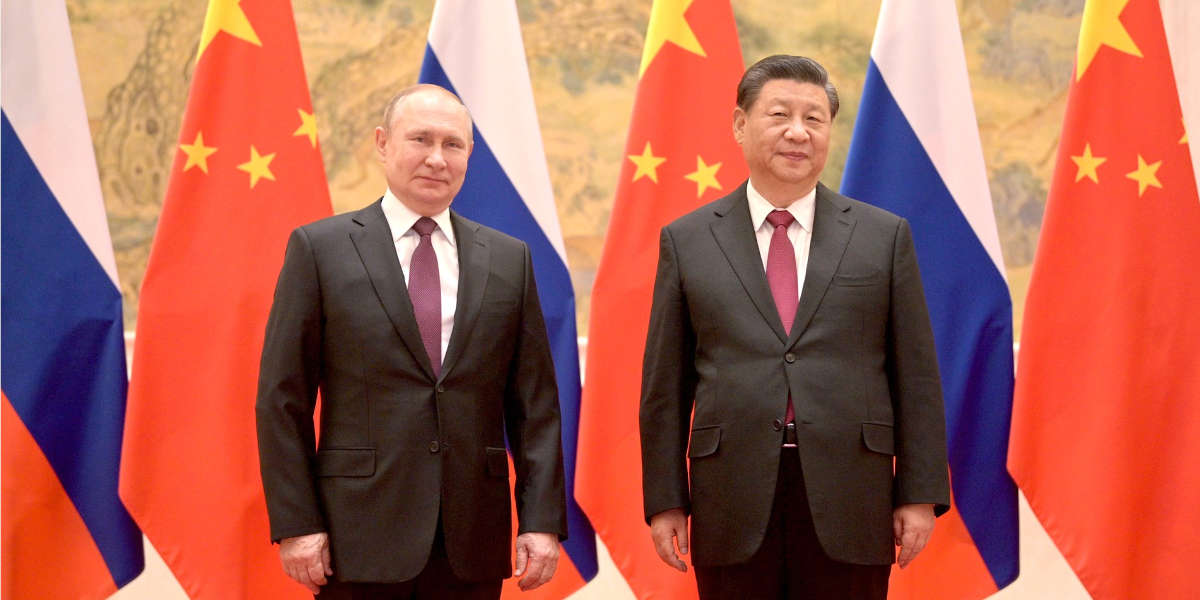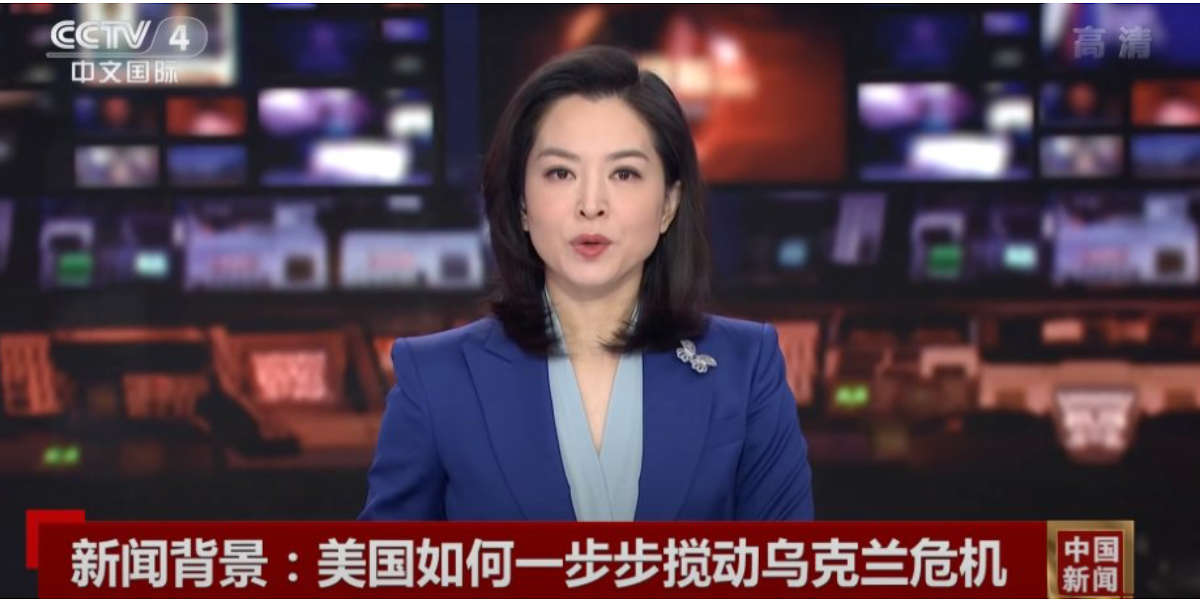In the picture
Meeting between Xi and Putin in advance of the Beijing Winter Olympics, February 4, 2022 [Kremlin].
Due to its great international relevance, China will undeniably be affected by the Russian invasion of Ukraine. Its position on the issue will impact not only the development of the crisis itself but future shifts on the global status quo. China's importance is shaped by key factors such as potential Chinese foreknowledge on the invasion, the economic repercussions it will face, the potential consequences for the security dimension elsewhere, particularly Taiwan, and its apparently ineffective protection of its citizens in Ukraine.
China's position on the invasion
Rising in importance over the last years, China's relevance in the international arena makes its position on the Russian invasion of Ukraine a decisive factor not only in the development of the crisis itself but also regarding the maintenance or collapse of the global status quo. Its strong economic, diplomatic, and military ties with Russia have only been reinforced in the last few years. When it comes to the conflict, China has ignored pleas from governments pushing it to persuade Russia to put an end to the invasion and mostly provided standard, relatively disengaged statements urging for restraint within the context of what some would call pro-Russian pseudo-neutrality. It has also taken the decision to denounce NATO, and particularly the United States, for supposedly stoking conflict in the region.
When it comes to its relationship with Washington, China's position in the conflict can and will test already vulnerable US-China relations. On March 14, after American average outlets, on the basis of unidentified American officials' testimonies, reported that Russia had requested military assistance from China, the United States warned China both privately and publicly that any country providing "material, economic, financial [or] rhetorical" support would face "consequences". However, some, including anonymous US officials, seem to be pessimistic about their efforts to dissuade China from assisting Russia, particularly since the Middle Kingdom's partnership with Russia is perceived to be highly important for Xi Jinping. In response to the allegations, Chinese Foreign Minister Wang Yi stated that China is "not a party" to the crisis and that "some forces have kept smearing China on the Ukraine issue ... and fabricated all sorts of disinformation". If China chooses to support Russia's endeavors, the most interested parties, such as the United States as well as the countries bordering Ukraine, might push their allies to rethink their relationships with China.
However, this is not necessarily the only possible outcome. China has signaled some interest in playing a mediating role between Russia and Ukraine, a situation in which its preexisting bond with Russia could be pivotal to its involvement being accepted. Here, it could wield this role to blame the United States and NATO for supposedly instigating Russia. Some analysts theorize that China will only be more assertive in pushing for a ceasefire once Putin has at least been partially vindicated through achievements such taking the Ukrainian capital Kyiv. Waiting for Russian military ascendancy would avoid Putin political humiliation which would in turn avoid humiliation for the Xi regime.
The Beijing 2022 Winter Olympic Games
The recently held Beijing 2022 Winter Olympics appear to have an important connection to the Russian invasion of Ukraine. According to Western intelligence, senior Chinese officials asked senior Russian officials to delay the invasion until after the end of the Olympics.
With the Beijing 2022 Winter Olympics closing ceremony being held on February 20, 2022, and Russia ramping up action in the coming days until February 24, 2022, the proximity between both events seems too convenient to be coincidental. Another factor pointing to China knowing of or even influencing invasion plans in Ukraine is the historical context. Russia's invasion of Georgia took place during the Beijing 2008 Summer Olympics, upsetting Chinese officials. Russia might have also learnt from its experience in 2014, during which any prestige or recognition it could have gained from hosting the Winter Olympics in Sochi was squandered by its immediate annexation of Crimea. The stringent average backlash after the 2014 invasion could have moved China to push Russia to postpone its intentions in 2022 as well as motivated Russia to understand its reasoning. With Russia and China having heavily strengthened their partnership since then, Russia might have not wanted to risk its relationship with the Middle Kingdom.
Whilst President Putin and President Xi did meet in Beijing on February 4, 2022, before the opening ceremony of the Olympics, the intelligence report does not necessarily imply that these too discussed the matter directly. However, given the close relationship between the two heads of state, it seems unlikely that they did not touch the subject. When asked about these accusations, the Chinese Embassy spokesman in Washington, Liu Pengyu, stated, "these claims are speculation without any basis, and are intended to blame-shift and smear China".
Economic repercussions
The Belt and Road Initiative and its stakeholders
The Russian invasion of Ukraine will have important repercussions for the world economy and China's Belt and Road Initiative is no exception. Within the context of its large-scale infrastructure projects designed to connect all of Eurasia with China, the New Eurasia Land Bridge Economic Corridor is one of its most promising endeavors. The corridor would establish critical railroad connections for China with countries such as Kazakhstan, Russia, Belarus, and Poland. The value of the goods transported through these railroads has skyrocketed from billion in 2016 to $74.9 billion in 2021, showing no signs of stopping regardless of key obstacles such as the COVID-19 pandemic. Whilst initially supported heavily by Chinese subsidies, the Chinese government is now considering ending them in 2023, evidencing its profitability.
The success of the projects seemed to bolster China's relationship with some of the key stakeholders involved, such as Poland, which joined China's 17+1 format, signed important strategic agreements with Beijing, and was the only elected European head of state to attend the opening ceremony for the Beijing Olympics.
However, with the recent developments regarding the Russian invasion of Ukraine, the status quo appears to shift.
The economic sanctions imposed will prevent key companies from being able to ship goods via Russia, a country directly in the center of the New Eurasia Land Bridge Economic Corridor. Both consumption and exports might be heavily disrupted because of arising sanctions and counter sanctions.
Regardless of the direct barriers to trade caused by the potential exclusion of Russia, other potential trade hubs might be disrupted due to their proximity to the conflict.
Additionally, relatively lukewarm responses such as China's abstention from voting on the General Assembly's resolution condemning Russian aggression on Ukraine might bolster changes in public opinion that might carry economic consequences, such as reduced engagement from consumers or voters advocating for less commerce with China. Coming back to the Polish example, studies indicate that a significant portion of the Polish population have had worsened views of China in the last three years and that most Poles do not see China as a trustworthy partner. If this is the case for a country considered relatively close to China (at least within the European context) we can expect to see sharper downward turns in public opinion in the future.
A contrasting example of China's relationship with countries surrounding Ukraine is Belarus, Russia's most relevant supporter in the region. Even after promising ties established within the context of the Belt and Road Initiative, and, particularly New Eurasia Land Bridge Economic Corridor, China-Belarus relations cooled after China's lack of strong political or economic support during mass protests following Lukashenka's purported election rigging. Here, China only provided relatively mild statements that the crisis should be handed by Lukashenka himself. However, the combination of the West's measures against Lukashenko's regime and
Belarus' support of Russia might make it a more stable and predictable economic gateway to Europe for China. Regardless, it is important to consider that the previously mentioned obstacles to China's relationship with Europe, specifically hindrances to the New Eurasia Land Bridge Economic Corridor, will still exist.
The energy dimension
The recent events will also have important repercussions for the Chinese energy industry. With China's energy consumption being on a constant rise due to its growing economy ensuring a stable supply of energy proves a key challenge. Delivering 1.6 million barrels per day in 2021, Russia was China's second-largest supplier of crude oil in 2021.
With Germany halting the Nord Stream 2 pipeline because of the Russian invasion of Ukraine, one would question whether China could take this opportunity to increase gas imports from a potentially desperate Russia. This also begs the questions as to whether or not China could help the damper the critical blow to the Russian oil industry. The most recent Sino-Russian energy endeavor is a new pipeline from Siberia established during their meeting ahead of the Beijing Winter Olympics. However, it has not yet been determined when this pipeline will become operational and at least one analysis points to it having just one fifth of the capacity of the Nord Stream 2 pipeline.
Chinese imports from Russia
The crisis will also affect other Chinese imports from Russia unrelated to the energy industry. The European and American markets are far more economically engaging for China, selling approximately six times to the China than what Russia did if we look at 2021. The only Russian goods with a particular appeal for China are weapons, which a penurious and desperate Russia began supplying to the Middle Kingdom, its former rival. While the sales dropped after 2006 due to factors such as China wanting more advanced weapons Russia was reluctant to supply, Russia has forced to retract its unwillingness after suffering sanctions for its 2014 invasion in Crimea.
These factors could push China into several scenarios. On one hand, if China sees its economic ties with the West as more profitable than its links to Russia, it could choose to scrap its relationship with the Eurasian giant (particularly when considering the potential penalties imposed on Chinese firms for continuing to do business with Russian firms). However, China could also choose to absorb Russia's trade needs. However, when considering again how miniscule China's actual trade with Russia is in comparison to its trade with the West, the decision would not be economically profitable even if it is coherent with its diplomatic perspective. If China manages to play its cards well (and, if the West chooses a less assertive approach regarding China), it could continue to craft this pseudo-neutral image where it can continue to trade with all the involved stakeholders. Chinese efforts to portray itself as a potential mediator in the conflict could be used to assert this approach.


